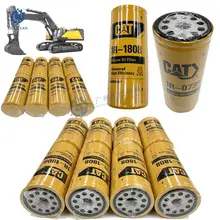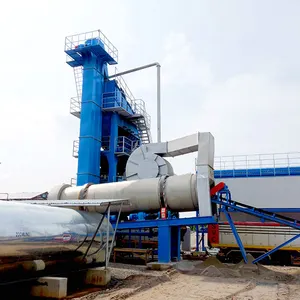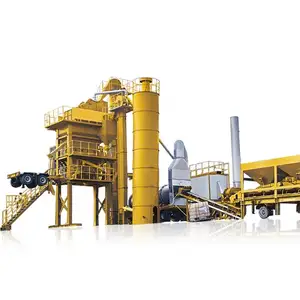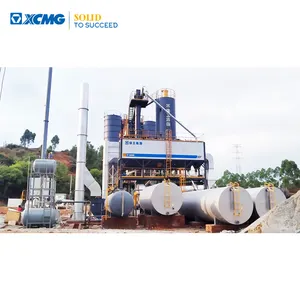Top categories

Engineering & Construction Machinery

Energy & Mineral Equipment

Building Material Machinery

Used Machinery
About products and suppliers
Introduction to Asphalt Mixing Plants
Asphalt mixing plants are integral to the construction industry, providing the essential material needed for paving roads, parking lots, and various other surfaces. These plants combine aggregates, sand, and fillers in precise proportions with asphalt cement to produce a composite material known as asphalt concrete. The meticulous mixing process ensures a uniform and quality product that meets the specific requirements of each project.
Types of Asphalt Mixing Plants
There are several types of asphalt mixing plants available to cater to different project needs. Batch mix plants offer high precision and control, making them suitable for high-quality surfacing. Drum mix plants, on the other hand, are prized for their simplicity and continuous operation, ideal for large-scale production. Mobile asphalt mixing plants provide flexibility, allowing for on-site production and reducing material transportation costs.
Components and Features
An asphalt mixing plant consists of various components such as cold aggregate supply systems, drum dryers, burners, hot aggregate elevators, vibrating screens, weighing systems, and mixing systems. Advanced features include temperature controls, dust collection systems, and storage silos, which contribute to the efficiency and reliability of the mixing process. These features ensure consistent production quality and adherence to environmental standards.
Applications and Advantages
The primary application of an asphalt mixing plant is in the creation of hot mix asphalt for road construction and maintenance. The advantages of using these plants include the ability to create mixes with a variety of properties, tailored to the demands of specific projects. This flexibility ensures durability, resistance to various weather conditions, and longevity of the paved surfaces.
Materials and Sustainability
Modern asphalt mixing plants are designed with sustainability in mind. They often incorporate recycled asphalt pavement (RAP) into new mixes, reducing the need for virgin materials and minimizing waste. The use of RAP also contributes to the conservation of natural resources and reduction in the carbon footprint of asphalt production.
Choosing the Right Asphalt Mixing Plant
Selecting the appropriate asphalt mixing plant involves considering factors such as production capacity, the technology used, the type of mix required, and environmental regulations. It is crucial to assess the specific needs of a project to ensure the chosen plant can deliver the desired output with efficiency and compliance.
asphalt mixing plant























 浙公网安备 33010002000092号
浙公网安备 33010002000092号 浙B2-20120091-4
浙B2-20120091-4